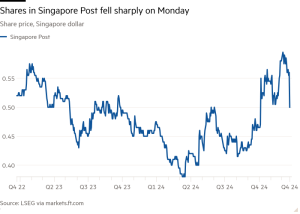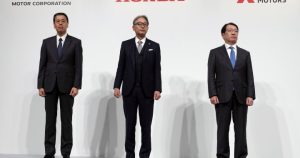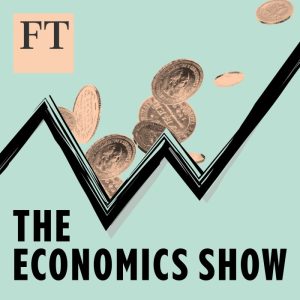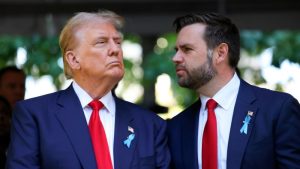Chicken wing and Shakira-backed debt floods Wall Street
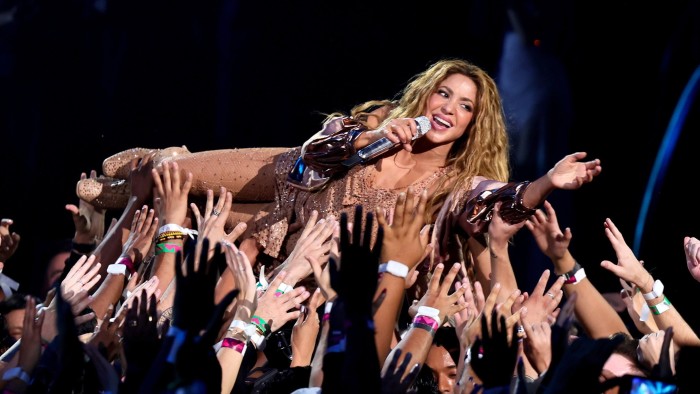
One scoop to start: Blackstone has cooled on taking part in the takeover of eyecare company Bausch + Lomb, jeopardising one of the biggest leveraged buyouts in healthcare this year, according to people familiar with talks.
And a big win for Lina Khan: The largest supermarket merger in US history has been blocked by a federal judge, handing a victory to federal antitrust regulators who argued Kroger’s $24.6bn purchase of Albertsons would harm consumers and workers.
Welcome to Due Diligence, your briefing on dealmaking, private equity and corporate finance. This article is an on-site version of the newsletter. Premium subscribers can sign up here to get the newsletter delivered every Tuesday to Friday. Standard subscribers can upgrade to Premium here, or explore all FT newsletters. Get in touch with us anytime: [email protected]
In today’s newsletter:
-
Esoteric debt makes a $380bn comeback
-
Evergrande’s private jets
-
AllianceBernstein set to join lawsuit over AT1s
The era of chicken wing-backed bonds
Want a financial product tied to spicy chicken wing revenues at the US restaurant chain Wingstop? Or to oil sales from ExxonMobil-backed wells?
You’re in luck. This year has seen the biggest boom on Wall Street of complex financial products since the global financial crisis in 2007. Investors are clamouring for returns, and bankers are delivering.
The data’s startling. The global volume of structured finance transactions has hit $380bn this year, according to data from LSEG. That figure excludes real estate and traditional corporate loans, and is up more than a fifth from the same period a year ago.
And structured deals linked to more arcane assets — ie not the credit card and auto loan debt that still dominates the asset-backed securities market — have already risen more than 50 per cent this year compared with all of 2023 to $63bn, according to JPMorgan Chase.
These bonds are backed by income that’s tied to revenue from a whole suite of things. Just to name a few of the underlying assets: spicy chicken wings, data centres and music catalogues of artists including Shakira.
While the products sound like fun and games, some investors are sceptical. Memories of the run-up in convoluted financial products on offer just before the financial crisis are still fresh. Are managers who are flush with cash properly vetting risk?
Analysts say the size of the market is small enough to avoid creating a systemic problem and investors counter that the debt is safer than investing in simple common stocks.
Benjamin Fernandez, head of esoteric structured finance (what a title) at Barclays worked on the Wingstop transaction and co-led the oil well deal — both of which closed on the same day in November.
“While this isn’t the first time we’ve wrapped up two deals in one day, I expect this to become more frequent as the esoteric universe expands,” he said.
Evergrande investors on a wing (and a prayer)
At the start of this year, Alvarez & Marsal won a piece of business that stands to keep its growing Asia restructuring team busy for years: the liquidation of China Evergrande’s Hong Kong holding company.
If A&M can succeed in salvaging some returns for overseas investors, it can cement itself as a dominant player in the Hong Kong market — where its footprint as recently as a decade ago was small.
But the task will be tough. Most of Evergrande’s assets are in mainland China, whose legal system differs from the Hong Kong regime under which A&M executives Edward Middleton and Tiffany Wong were appointed as Evergrande’s liquidators.
Their latest move — which centres on an enormous private jet — sets up an important test of their ability to enforce their ownership in the mainland.
The advisers are trying to sell an Airbus plane that belonged to Evergrande’s founder Hui Ka Yan, one of several status symbols he accumulated during the boom years when the developer was growing fast.
He also bought mansions in London, Sydney and Hong Kong as well as a 60-metre megayacht and a football team, Guangzhou Evergrande.
Hong Kong court filings this year said he owned two yachts, two Rolls-Royce Phantoms and two other jets — an Airbus A330 and a Gulfstream G450 — in addition to the A319 that’s now up for sale.
Evergrande said last year that Hui had been placed under “mandatory measures” on suspicion of involvement in “illegal crimes”.
The liquidators have taken control of the offshore entity through which the A319 was purchased. But the jet itself is in Guangzhou in southern China, so selling it and delivering it to a buyer could prove complicated. Most of Evergrande’s assets and liabilities are on the mainland.
In addition to the jet sale, Middleton and Wong have other ways to try to reclaim money.
They’ve launched court proceedings against Big Four audit firm PwC, commercial real estate services company CBRE and advisory group Avista Valuation Advisory — all of whose services helped enable Evergrande’s rapid rise by smoothing the path of accessing foreign funding.
Still, the liquidation could prove more complicated than a previous job the pair worked on: the liquidation of Lehman Brothers’ vast Asian operations.
AllianceBernstein to sue over Credit Suisse debt wipeout
The writedown of $17bn worth of Credit Suisse debt might seem like a distant memory. But for certain asset managers, the inability to cash in on what should’ve been a huge windfall is still top of mind.
AllianceBernstein is the latest firm preparing to sue Switzerland for $225mn over the country’s decision to wipe out Credit Suisse’s debt during the government’s UBS orchestrated takeover last year.
The group, which manages $800bn in assets, is the first large institutional investor to join the claim. Their participation brings the total value of the lawsuit to $375mn, the FT’s Simon Foy and DD’s Ortenca Aliaj report.
Law firm Quinn Emanuel Urquhart & Sullivan represents the Credit Suisse bondholders, and is leading the charge against the Swiss state in the Southern District of New York. They’ve argued the deal was an unlawful encroachment on investors’ property rights.
Switzerland has argued that as a foreign state, it’s immune to the lawsuit and the dispute should be adjudicated in a court in the country.
Lawyers at Quinn Emanuel chose to sue in the US for that precise reason: they believe there’s a greater chance of convincing a judge to waive Switzerland’s sovereign immunity rights.
The securities in question are AT1 bonds, which are a form of bank capital that converts into equity or is written down when a lender runs into trouble.
The UBS-Credit Suisse deal famously upended the traditional hierarchy among bank creditors: bondholders lost money while equity investors recovered $3.3bn. The Swiss government is represented by Wachtell, Lipton, Rosen & Katz.
Little known to regulators at the time, that $3.3bn deal for Credit Suisse have resulted in more than $9bn of legal claims. And surely, many courtroom-induced headaches.
Job moves
-
Donald Trump has picked commissioner Andrew Ferguson to chair the Federal Trade Commission. He was previously Virginia’s solicitor-general, and prior to that, was chief counsel to Republican senator Mitch McConnell.
-
Bank of America has appointed Frank Haffmans and Sergeij Hierner as co-heads of corporate and investment banking for Belgium, the Netherlands and Luxembourg. Haffmans has been with BofA for more than a decade, while Hierner formerly worked for Goldman Sachs.
-
Hershey president of US confection Michael Del Pozzo is leaving his job after just three months. He will return to PepsiCo, where he spent 32 years overseeing brands including Gatorade and Muscle Milk.
Smart reads
Investor revolt South Korea’s most powerful families have had near unwavering power over the country’s economy for decades, Bloomberg writes. Recent political turmoil has spurred regulators and investors to ask questions about that long-held status quo.
Economic reckoning The UK and its European neighbours have opportunities to fend off slow growth, the FT’s Martin Wolf writes. They must grasp the nettle of economic reform.
Utility stand-off Thames Water is nearing a market-led solution to its months of crisis, Lex writes. But at what cost?
News round-up
Walgreens Boots in talks over sale to private equity group Sycamore Partners (FT)
Domino’s among four bidders circling chicken chain Wingston’s UK franchise (FT)
Nippon Life in talks to buy Resolution Life for $8.2bn in jumbo insurance deal (FT)
Thames Water boss says break-up would be a distraction (FT)
Blackstone’s purchase of London’s ‘Can of Ham’ skyscraper falls through (FT)
McKinsey’s $122mn bribery settlement in South Africa sparks outrage (FT)
Barrick CEO denies giving ‘nonsense’ evidence in Hannam court case (FT)
China’s CATL To build €4.1bn battery factor with Stellantis in European expansion (FT)
Due Diligence is written by Arash Massoudi, Ivan Levingston, Ortenca Aliaj, and Robert Smith in London, James Fontanella-Khan, Sujeet Indap, Eric Platt, Antoine Gara, Amelia Pollard and Maria Heeter in New York, Kaye Wiggins in Hong Kong, George Hammond and Tabby Kinder in San Francisco, and Javier Espinoza in Brussels. Please send feedback to [email protected]
Recommended newsletters for you
India Business Briefing — The Indian professional’s must-read on business and policy in the world’s fastest-growing large economy. Sign up here
Unhedged — Robert Armstrong dissects the most important market trends and discusses how Wall Street’s best minds respond to them. Sign up here
#Chicken #wing #Shakirabacked #debt #floods #Wall #Street
